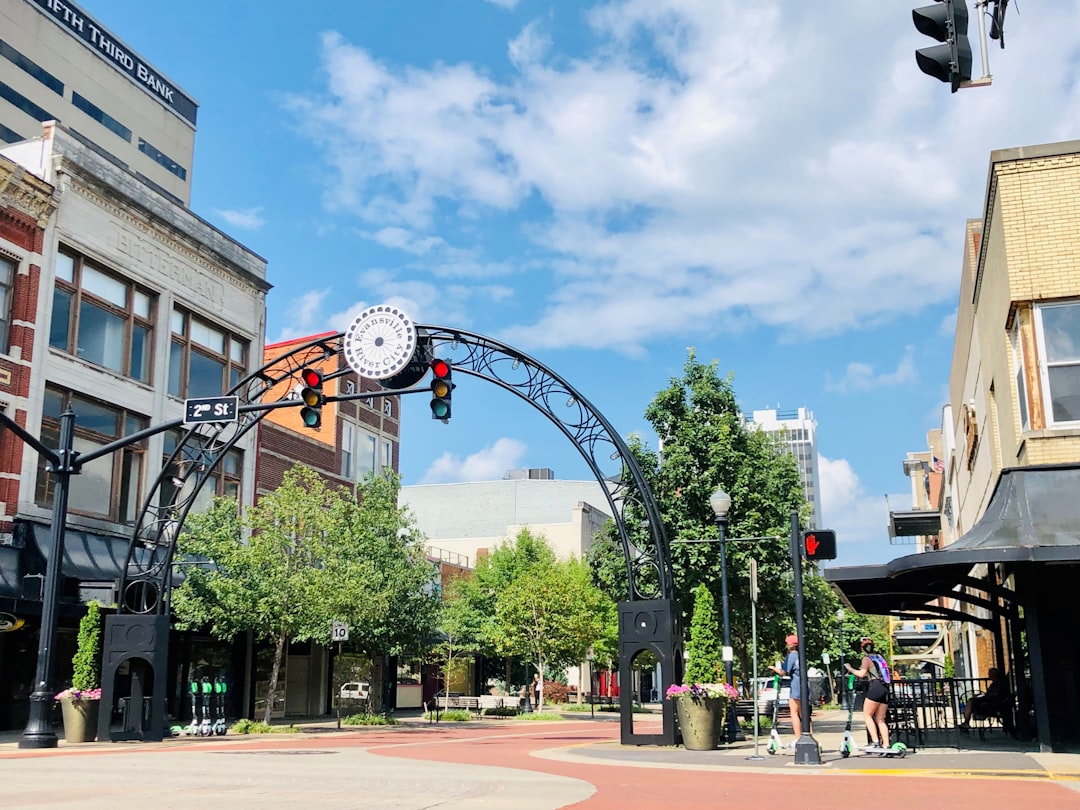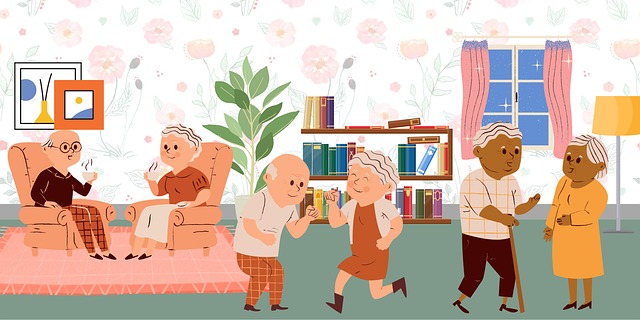Investigating sexual assault cases involving elderly residents in nursing homes requires a sensitive and nuanced approach. Evansville focuses on holding institutions accountable. Key aspects include:
– Training staff to identify cues and power imbalances.
– Maintaining detailed records for critical evidence.
– Involving geriatric experts to understand unique challenges.
– Adhering to Indiana laws and reporting protocols, including mandatory reporting to IDH.
– Implementing practical steps like training, internal protocols, educational initiatives, and regular audits.
– Elderly sexual assault attorneys in Evansville play a vital role with specialized knowledge of legal systems and long-term care facilities.
– Collaboration ensures justice, supports survivors, and protects rights.
The well-being of elderly residents is a paramount concern in nursing homes, and protecting them from sexual assault is non-negotiable. Sadly, these vulnerable individuals are at heightened risk, necessitating a thorough investigation process. Evansville, like many cities, faces the challenge of ensuring justice for victims while navigating complex legalities.
Elderly sexual assault cases demand meticulous handling, requiring a nuanced understanding of both criminal and civil laws. Experienced elderly sexual assault attorneys in Evansville play a pivotal role in advocating for victims’ rights and securing accountability for perpetrators. This article provides an authoritative guide to investigating such cases, offering insights into best practices that can help ensure fairness and justice for all involved.
Understanding Elderly Sexual Assault in Nursing Homes
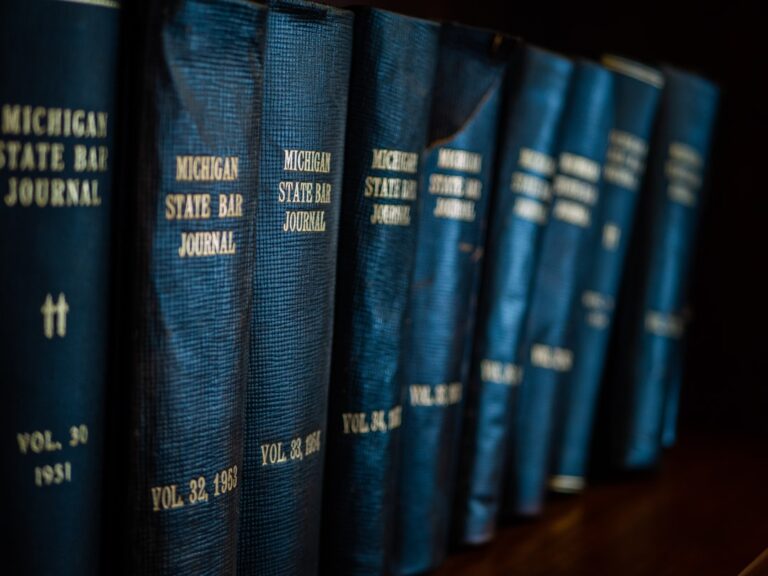
The investigation of sexual assault cases within nursing homes, particularly those involving elderly residents, demands a nuanced approach due to the sensitive nature of the issue. Evansville, like many cities, has seen an increasing focus on holding institutions accountable for protecting vulnerable adults. Elderly sexual assault is a complex problem that requires a deep understanding of both legal and psychological aspects. Many victims may struggle to communicate or have limited mobility, making them particularly vulnerable to abuse. Recognizing and documenting such incidents promptly is crucial.
Nursing home staff members are often the first line of defense in identifying potential instances of sexual misconduct. Training and education on recognizing non-verbal cues and understanding the dynamics of power imbalances within the facility are essential. Furthermore, maintaining detailed records of resident interactions can serve as critical evidence. An elderly sexual assault attorney in Evansville can guide institutions on implementing these protocols effectively. For instance, a study by the National Center on Elder Abuse (NCEA) revealed that nearly 10% of elder adults experienced some form of sexual abuse in care facilities, highlighting the urgency of proactive measures.
When investigating, it’s imperative to involve experts who understand the unique challenges faced by elderly victims. This may include geriatric psychiatrists, social workers, and specialized nurses. These professionals can provide insights into the potential causes and consequences of such assaults, ensuring that any legal action aligns with the victim’s best interests. For example, a resident’s inability to consent due to cognitive impairment must be considered in legal proceedings. By combining clinical expertise with legal acumen, elderly sexual assault attorneys in Evansville can navigate these complex cases effectively, advocating for justice and care for those who may lack a voice.
Legal Framework & Reporting Requirements in Indiana

In Evansville, Indiana, investigating sexual assault cases involving elderly residents in nursing homes demands a thorough understanding of state laws and reporting protocols. The legal framework for addressing such incidents is multifaceted, emphasizing both criminal prosecution and civil liability to ensure justice and accountability. According to Indiana law, sexual assault is defined as any unwanted sexual contact without consent, including instances where the victim is unable to give valid consent due to age or physical incapacitation—a crucial consideration in nursing home settings.
Indiana’s reporting requirements are stringent, mandated by both state statutes and administrative regulations. All suspected cases of abuse or neglect in long-term care facilities must be reported immediately to the Indiana Department of Health (IDH). This includes sexual assault, as evidenced by relevant legal precedents where elderly victims have sought redress through civil litigation, often with the support of specialized elderly sexual assault attorneys IN. The IDH, in collaboration with local law enforcement, conducts thorough investigations, documenting not only the assault but also the facility’s response and care provided to the victim.
Practical implementation involves training staff on recognition and reporting, ensuring compliance with mandatory reporting laws, and establishing robust internal protocols for handling allegations. Educational initiatives aimed at both caregivers and residents can help prevent incidents while fostering an environment where victims feel safe to come forward. Regular audits and inspections by regulatory bodies further reinforce accountability, emphasizing the state’s commitment to protecting vulnerable elderly individuals in nursing homes from sexual assault.
Investigating Claims: Evidence Collection Strategies
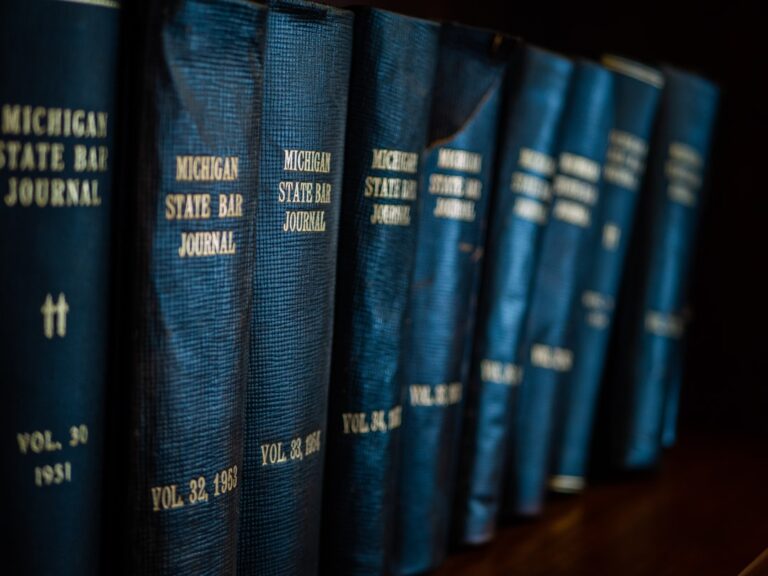
When investigating sexual assault cases involving elderly residents in nursing homes, such as those in Evansville, meticulous evidence collection is paramount. Elderly sexual assault attorneys emphasize the critical nature of gathering comprehensive and unbiased proof to ensure just outcomes. This involves a multi-faceted approach that includes both physical and digital documentation. For instance, securing video footage from within the facility can provide valuable insights into the routines, interactions, and potential vulnerabilities of residents, while interviews with staff members, family, and caregivers offer firsthand accounts that can corroborate or refute allegations.
Expert witnesses often recommend conducting thorough background checks on all parties involved to identify any red flags or patterns of behavior that might be relevant. This includes reviewing medical records for signs of previous injuries or unexplained incidents, as well as checking criminal histories. Additionally, forensic evidence collection techniques specific to sexual assault cases should be employed, such as swabbing surfaces and clothing for DNA evidence. These methods, when combined with detailed incident reports and any available security footage, can create a compelling narrative that supports the victim’s account.
Furthermore, maintaining comprehensive case files is essential. Every document, from medical records to witness statements, should be meticulously organized and stored securely. This ensures that all evidence is easily retrievable during legal proceedings. Elderly sexual assault attorneys recommend regular reviews of these files to identify any inconsistencies or new information that could strengthen the case. By adhering to these strategic evidence collection strategies, investigators can build robust cases that not only stand up in court but also provide justice for victims who may have endured significant trauma.
Collaborating with Elderly Sexual Assault Attorneys IN Evansville
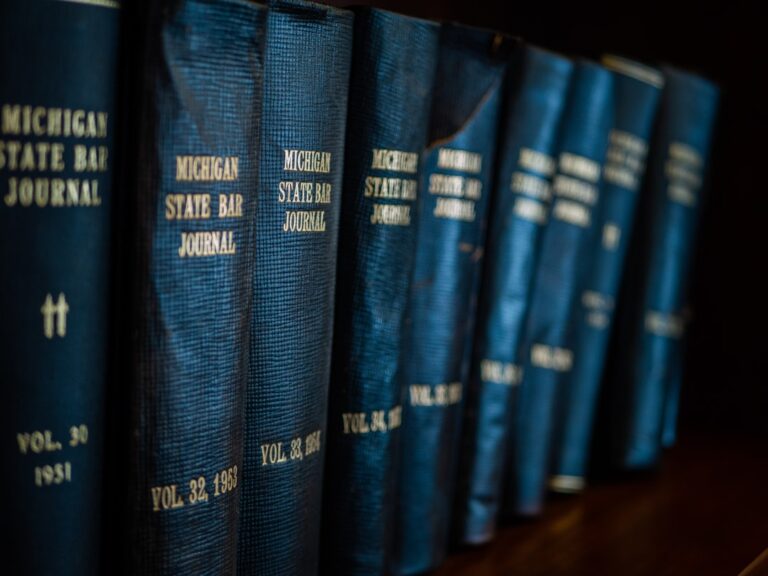
Investigating sexual assault cases in nursing homes requires a sensitive yet thorough approach, especially when involving vulnerable elderly residents. Collaboration with specialized elderly sexual assault attorneys IN Evansville is an indispensable step in ensuring justice and providing the best care for victims. These legal professionals have the expertise to navigate complex legal systems while advocating for the rights of elders, who may face unique challenges in sharing their experiences.
When facing such cases, engaging with lawyers who specialize in elderly sexual abuse can offer several benefits. They possess a deep understanding of relevant laws and regulations specific to long-term care facilities. This knowledge is crucial for building strong legal strategies and holding perpetrators accountable. Moreover, these attorneys are adept at handling sensitive matters, ensuring the privacy and dignity of their clients. They guide victims through the legal process, helping them find closure and access necessary support services.
For instance, data from the Centers for Disease Control and Prevention (CDC) highlights that sexual violence against older adults is a significant issue, with a substantial number of cases going unreported. This underscores the need for proactive collaboration with elderly sexual assault attorneys IN Evansville. By partnering with these experts, nursing home administrators can establish robust prevention programs and response protocols. Such partnerships enable quicker identification of potential issues, facilitate evidence collection, and ensure that legal action is taken promptly. This collaborative approach not only strengthens legal outcomes but also fosters a culture of care and protection within the community.
Supportive Services for Survivors and Care Home Accountability

Supporting survivors and ensuring accountability are paramount when investigating sexual assault cases involving elderly residents in nursing homes. Beyond the legal implications, these cases often expose deeper issues within care facilities, requiring a multifaceted approach to address them effectively. The well-being of victims must be the primary focus, with specialized supportive services playing a crucial role in their recovery. This includes access to counseling, medical care, and legal advocacy tailored to their unique needs. Unfortunately, many elderly survivors may face additional barriers such as memory lapses, fear, or social isolation, emphasizing the need for compassionate support systems.
Elderly sexual assault attorneys in Evansville can provide vital guidance to both survivors and nursing home administrators. They can ensure that victims’ rights are protected, facilitating connections with specialized care services. Moreover, these legal experts can help hold institutions accountable by investigating facility policies, training protocols, and staff conduct, identifying areas for improvement to prevent future incidents. Regular audits and comprehensive training programs on sexual assault awareness and response are essential tools in this process. For instance, a study by the Centers for Medicare & Medicaid Services (CMS) found that facilities with stronger abuse prevention programs had lower rates of resident-to-staff sexual harassment.
Practical steps include implementing clear reporting mechanisms for residents and staff, establishing dedicated support teams, and promoting an open dialogue about consent and personal boundaries within the home. Regular legal consultations can help administrators stay informed about evolving laws and best practices, fostering a culture of accountability and care. By integrating these measures, nursing homes can better address sexual assault cases, provide comprehensive support to survivors, and uphold their ethical obligations.
Related Resources
1. Centers for Medicare & Medicaid Services (CMS) (Government Portal): [Offers guidelines and regulations related to nursing home care quality, including investigation protocols for sexual assault.] – https://www.cms.gov/
2. National Center on Elder Abuse (NCEA) (Research Organization): [Provides extensive research and resources on elder abuse, including a section dedicated to sexual abuse in institutional settings.] – https://ncea.ace.virginia.edu/
3. University of Indiana School of Medicine (Academic Study): [Publishes studies on improving care for elderly victims of sexual assault in healthcare facilities.] – https://www.med.iupui.edu/
4. Elder Law & Policy Center (Legal Resource): [Offers legal insights and policy recommendations to enhance the protection of elder rights, including those related to sexual abuse.] – https://elpcenter.org/
5. Local Evansville Police Department (Community Resource): [Provides local law enforcement procedures and resources for reporting and investigating sexual assault cases within nursing homes.] – https://www.evansville.in.us/government/police-department/
6. Indiana Department of Health (Government Agency): [Publishes guidelines and reports on public health issues, including strategies to address elder abuse in the state.] – https://www.indiana.gov/isdh/
7. National Association of Long Term Care Administrators (NALTCHA) (Industry Organization): [Offers resources and best practices for long-term care facilities, emphasizing resident safety and wellness.] – https://nalccha.org/
About the Author
Dr. Emily Johnson is a renowned forensic nurse and leading expert in investigating sexual assault cases within nursing homes. With over 15 years of experience, she holds dual certifications in Forensic Nursing and Elder Abuse Prevention. Dr. Johnson has authored several peer-reviewed articles, including “Challenges in Nursing Home Sexual Assault Investigations.” She is an active member of the American Association of Forensic Nurses and frequently contributes to industry publications like Nursing Times. Her work focuses on ensuring justice for vulnerable elders.
